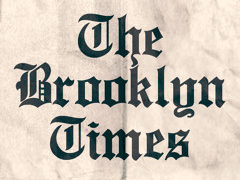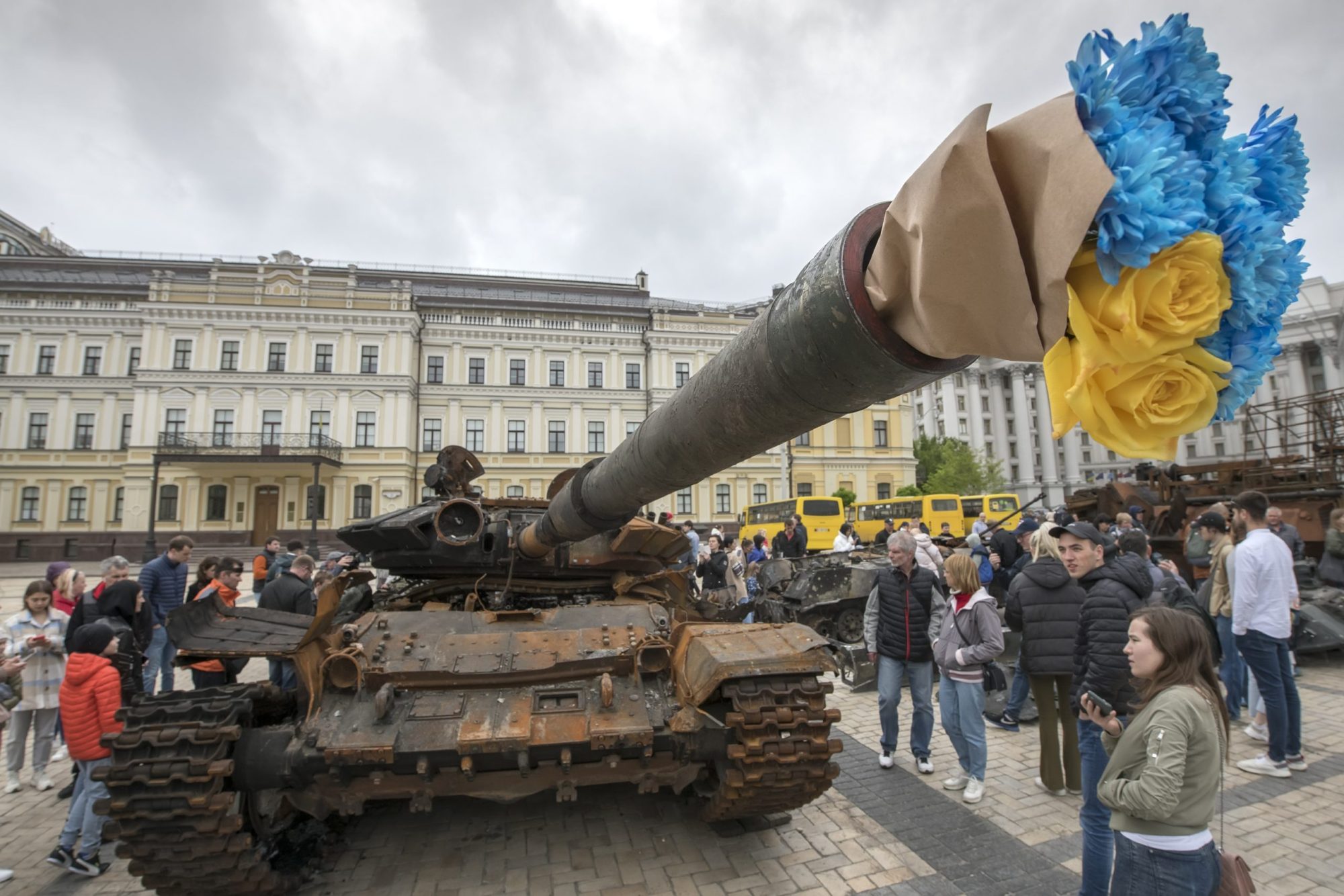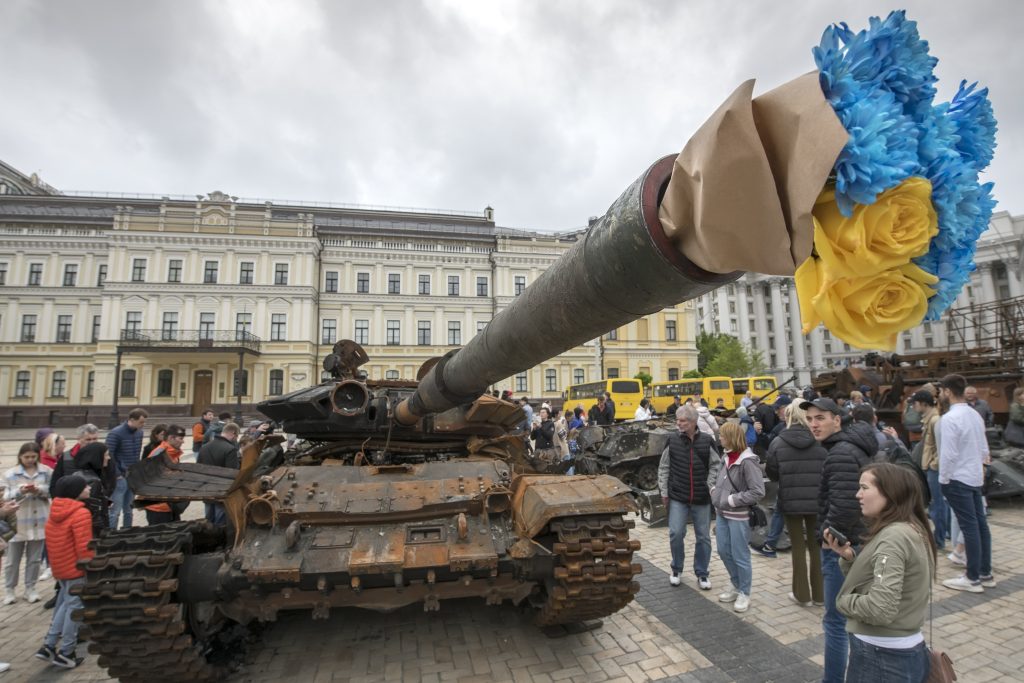“Путешественник во времени, прибывший в наши дни из 1930-х, без труда опознал бы в путинском режиме режим фашистский. Символ Z, народные шествия, пропаганда, идея войны как акта очистительного насилия, братские могилы вокруг украинских городов — все это не оставляет пространства для сомнений. Война в Украине — не просто возвращение на традиционный фашистский плацдарм, но и воссоздание традиционных фашистских практик и риторики. Другие народы существуют для того, чтобы их колонизировать. Россия ни в чем не виновата в силу ее славного прошлого. Существование Украины – результат международного заговора. Единственный возможный ответ – война“.
Столь жесткую характеристику дает нынешнему российскому режиму американский историк Тимоти Снайдер в своем недавнем нашумевшем эссе под названием “Мы должны сказать это вслух: Россия – фашистское государство” (We Should Say It. Russia Is Fascist). Этот текст, опубликованный около месяца назад в New York Times, стал одним из наиболее широко обсуждаемых в русскоязычной интеллектуальной среде и соцсетях. Дело не только в хлесткости определений Снайдера, но и в том, что украинская война вновь подняла вопрос о том, что же за режим управляет Россией.
Как и почему система, выстроенная Владимиром Путиным, умудряется существовать столь долго, становясь всё более жесткой и агрессивной? Почему не оправдываются прогнозы российской оппозиции, часть которой из года в год предрекает путинизму скорый крах? Можно ли вслед за Тимоти Снайдером считать, что Россия стала фашистским государством? И если нет, то как охарактеризовать этот режим и каковы его перспективы – в контексте развязанной им войны и небывало жестких санкций, введенных странами Запада против Москвы?
Обо всем этом Радио Свобода беседует с одним из ведущих российских специалистов по проблемам формирования и развития авторитарных политических режимов, профессором Европейского университета в Санкт-Петербурге Григорием Голосовым.
– Пару лет назад мы с вами разговаривали о природе нынешнего российского режима. Вы классифицируете его как электоральный авторитаризм. В последние годы, когда оппозиция в России подвергается “жесткой зачистке”, принимается множество репрессивных законов, в том числе связанных с войной в Украине, похоже, в режиме становится всё меньше электорального и всё больше репрессивного. На ваш взгляд, есть ли тут какой-то качественный скачок в сторону откровенной диктатуры, и если да, то когда он произошел: после референдума об “обнулении”, с началом вторжения в Украину, или есть иная дата?
– Я качественного скачка не вижу и, по правде сказать, не считаю, что этот режим стал более авторитарным в последние годы. Просто некоторые его качества проявились более ярко. Но о том, что он достиг консолидированной фазы, можно говорить уже с 2016 года, а может, и раньше. Он стал более репрессивным в прошлом году в связи с приближавшимися выборами. Но именно в том, что это было связано с выборами, и проявилась его природа как электорального авторитаризма.
Григорий Голосов
– В чем она заключается?
– Любой политический режим имеет две составляющие: персональную и институциональную. Вопрос в том, каково соотношение между ними. Можно представить себе демократию, в которой власть сильно персонифицирована – допустим, Франция при де Голле. Или демократию, где институты доминируют над персоналиями: в Японии случалось, что люди толком не знали, кто сейчас премьер-министр, но знали, какая партия правит.
А электоральный авторитаризм – это режим, в котором в качестве вторичного институционального средства существуют выборы. Это средство для режима важно, но, в отличие от демократии, оно для него вторично. При таком режиме невозможны выборы, на которых носитель власти может проиграть. Другие авторитарные режимы устроены иначе. Допустим, в абсолютной монархии важную институциональную роль играет двор, в партийном – правящая партия, в военных диктатурах – внутренняя структура военной корпорации. Но электоральный авторитарный режим обладает самым большим потенциалом перерастания в “чистую” персональную диктатуру. Именно потому, что ключевой институциональный механизм – выборы – является у него вторичным, а других нет.
– Так для чего этот механизм все-таки нужен в такой системе?
– А давайте представим себе, что Путин отменил бы выборы. На каком основании он тогда оставался бы у власти? Ему нужно было бы провозгласить себя императором. Теоретически это возможно, на практике – очень сложно. Он не может стать военным диктатором, потому что военным, собственно, не является. Он не может создать полноценную правящую партию, потому что она в какой-то степени ограничивала бы его власть. Именно поэтому Путину в качестве фиктивного средства институционализации нужны выборы.
Представим себе, что Путин отменил бы выборы. Тогда ему нужно было бы провозгласить себя императором
– Это типичный электоральный авторитаризм, или в путинском правлении есть что-то уникальное?
– Режимы такого типа – самый распространенный тип авторитаризма в современном мире, хотя наблюдается этот тип с XIX столетия. Но есть одна особенность: путинский режим возник в результате распада электоральной демократии. Она в России была, хоть и очень несовершенная, в 90-х годах. Она оставила довольно большое наследие в виде самого института выборов, Госдумы, политических партий и т.д. И при Путине, с одной стороны, это наследие долго перерабатывалось, а с другой – облегчало имитацию демократии режимом, который по сути демократическим уже давно не был. До сих пор все эти институты 90-х существуют, Госдума принимает законы, партии проводят съезды… В известном смысле это наследие облегчило превращение России в ту диктатуру, каковой она является сейчас. И если говорить о динамике режима, то она как раз заключается в том, что на наших глазах эти институты становятся еще менее важными, превращаются в совсем пустые скорлупки. Хотя на самом деле они стали имитационными задолго до того, как этот процесс стал очевиден.
– Госдуму называют “бешеным принтером”, по-моему, уже лет 10 или больше…
– Да, но если бы ее не было, пришлось бы придумывать что-то уже на авторитарной основе. А так – имеем квазидемократический институт, унаследованный из времен, когда он был не совсем “квази”. Это облегчает имитационную сторону функционирования режима.
Государственная Дума – имитационное наследие демократии 90-х
– Как вы сказали, свойства режима и степень их проявления меняются, и, видимо, на этой основе в интеллектуальной среде возник спор вокруг недавнего эссе Тимоти Снайдера. Разговоры о фашизации российского режима – это фигура речи, хлесткое сравнение, или все-таки они отражают политическую реальность?
– Я думаю, высказывание Снайдера следует рассматривать в контексте официальной позиции, с которой выступает администрация Байдена. Согласно ей, Россия сейчас представляет собой экзистенциальную угрозу США и всему западному миру. Потому что Россия – ядерная держава, и ее руководители не скрывают, что если сочтут это необходимым, то применят ядерное оружие. Кроме того, Россия ведет агрессивную внешнюю политику, направленную на территориальное расширение. В какой-то момент это расширение может затронуть страны, перед которыми у США есть военно-политические обязательства. В таком случае применение ядерного оружия в конфликте между двумя державами может стать неизбежным. Отсюда линия на то, чтобы всеми средствами, прежде всего санкциями, помешать России проводить такую политику.
Похоже, есть люди, которым эта позиция кажется недостаточно мотивированной – хотя я не понимаю, почему. Чтобы ее усилить, они хотят приписать нынешней борьбе дополнительное морально-идеологическое измерение. Для этого надо записать Россию в категорию абсолютного зла. И вот Тимоти Снайдер заявляет, что Россия – фашистская. А другой автор, консерватор Ли Эдвардс, говорит, что Путин – марксист-ленинец. Для определенной части американской общественности быть марксистом-ленинцем – это еще хуже, чем быть фашистом. В общем, это такие поясняющие ярлыки. В качестве риторической стратегии это работает слабо, потому что в ответ могут начать вспоминать о тесных отношениях США в разные времена с теми или иными несимпатичными правыми и левыми режимами, от послевоенной диктатуры Франко в Испании до сегодняшнего коммунистического Вьетнама.
Я понимаю, почему хотят риторически усилить критику России. На Западе вообще (и в США в частности) много влиятельных людей, которые на самом деле не хотят обострения отношений с Москвой, потому что им это по разным причинам, деловым или политическим, не выгодно. И вот чтобы уменьшить их влияние, некоторые сторонники жесткой линии пытаются показать, что Россия – то ли фашистская, то ли в каком-то другом смысле фундаментально неприемлемая. Но мне это не кажется правильным, потому что аргументов в пользу официальной американской позиции и без этого вполне достаточно.
– То есть попытки понять суть режима вы в этом не видите?
– Понять суть любого режима можно только путем систематического наблюдения и рассуждения о нем самом. Если же мы смотрим на исторические примеры, то кому угодно можно приписать какие угодно свойства явлений из прошлого, если захотеть. В результате в устах одного мыслителя Россия оказывается фашистской страной, а в устах другого – страной с коммунистическим правлением. Именно поэтому исторические иллюстрации и параллели поверхностны.
Люди, которые его окружают, обязаны своим продвижением не институтам, а тому, что их выбрал сам Путин
– Хорошо, вернемся тогда к систематическим рассуждениям о режиме Путина. Критически настроенные к нему люди предрекают режиму скорый крах уже лет 15, не меньше. Краха не происходит. В чем тут дело? Где спрятана Кащеева игла, в которой находится гибель этой политической модели?
– Любая персоналистская диктатура в первую очередь зависит от жизнеспособности и дееспособности самого диктатора и от того, может ли он контролировать своих соратников. А это в условиях электорального авторитаризма типа путинского делать гораздо проще, чем при авторитарном режиме, который институционализирован иначе. Скажем, в военных диктатурах есть армия как корпорация, и в этих условиях диктатору труднее назначать на ведущие посты своих друзей, потому что корпорация диктует: вот этот генерал – заслуженный, значит, именно ему, если он сам хочет, лучше быть губернатором провинции N. Путин таких возражений не слышит. Люди, которые его окружают, обязаны своим продвижением не институтам, а тому, что их выбрал сам Путин. Ожидать, что они будут оспаривать его власть, сложнее, чем в ситуации, когда они были бы обязаны своей карьерой чему-то еще, кроме воли правителя.
Генерал Хорхе Рафаэль Видела возглавлял военный режим в Аргентине в конце 70-х годов. За неполных 7 лет правления хунты были убиты тысячи ее политических противников и обычных граждан. Видела впоследствии был осужден и умер в тюрьме.
Кроме того, это именно электоральный авторитаризм, то есть здесь действует аргумент “Путин избран народом” (как именно избран, другой вопрос). И окружающим его людям, которые идейно находятся в рамках режима, возразить на это нечего. То есть, глядя на ситуацию с выборами в России, кто-то может назвать Путина узурпатором. Но люди из его окружения, которые попытались бы его свергнуть, как это ни парадоксально, выглядели бы в собственных глазах еще бóльшими узурпаторами.
– То есть еще одна заезженная формула – “раскол элит” – это нечто, от чего Путин благодаря свойствам выстроенной им системы “привит”, предохранен?
– Этот раскол колоссально затруднен по сравнению с военными режимами, которые и послужили когда-то основанием для появления формулировки “раскол элит”. Там были разные группировки военных с институционально закрепленными за ними ролями. Когда заходила речь о возможности демократизации режима, кто-то из них становился “ястребами”, кто-то “голубями”. Через этот раскол элит процесс демократизации и запускался. Если таких закрепленных ролей нет, то очень трудно, занимая важное место в системе власти, отстаивать какие-либо позиции, отличные от тех, которые проговаривает правитель. Это будет рассматриваться как проявление нелояльности, не подкрепленное никакими политическими ресурсами. Таких людей просто уволят. А вот многие из латиноамериканских военных диктаторов в 1970-х годах трижды подумали бы, прежде чем уволить каких-то влиятельных генералов. Потому что так можно было спровоцировать новый военный переворот. Мы ведь помним все эти разговоры о “башнях Кремля”. Эти разговоры с самого начала были пустыми просто потому, что “башни” в силу устройства системы всегда были бессильны по отношению к правителю.
– То есть получается, что единственным реальным фактором перемен может быть только биологический – смерть или серьезная болезнь правителя, вроде инсульта португальского диктатора Салазара?
– Если что-то сделать трудно, это не значит, что сделать это совершенно невозможно. На самом деле персоналистские диктатуры не раз становились жертвами заговоров. Давайте поспекулируем: есть сейчас в России какой-то заговор против Путина? Если мы ответим “да”, то это значит, что реального заговора нет, потому что заговор, о котором знаем даже мы с вами, – это не настоящий заговор. Если мы ответим “нет”, то тут есть две возможности: либо заговора действительно нет (и это, скорее всего, действительно так), либо он есть, и это настоящий заговор. Именно потому, что мы о нем ничего не знаем.
Разговоры о “башнях Кремля” с самого начала были пустыми потому, что “башни” в силу устройства системы всегда были бессильны по отношению к правителю
– Ну а нынешняя война с Украиной и сопровождающие ее очень жесткие западные санкции? Она является для режима серьезным потрясением – или скорее наоборот, мобилизующим фактором?
– Мы еще не знаем, какой именно эффект будут иметь санкции. Он пока не проявился. Россия проживает то, что осталось из накопленного. Скорее всего, к осени мы уже почувствуем последствия того, что резко сократился импорт и значительно уменьшились доходы от экспорта. Это скажется и на благосостоянии широких слоев населения, и на уровне доходов российского правящего класса. В какой степени, мы сказать не можем, потому что ситуация беспрецедентна: такого рода санкции никогда против никого не вводились. Но говорить о каком-либо политическом эффекте санкций можно будет только после того, как их экономический эффект проявит себя в полной мере. Сейчас еще рано.
– Мы с вами говорили о режиме, об элитах… А что же общество, в котором они существуют? Можно сейчас в России как-то понять политические ориентиры большинства общества? Вот есть спор о том, верить ли итогам соцопросов, согласно которым большинство россиян поддерживают войну против Украины. Трудно что-то сказать однозначно. Итак, мы в потемках, или понять, куда ветер дует, все-таки можно?
– Я не уверен, что сейчас нужно это улавливать. Это имеет значение в моральном плане – понять, настолько ли аморальны россияне, чтобы поддерживать кровопролитие в соседней стране. Да нет, не слишком аморальны. Просто всё, что большинство из них знает об этом из пропаганды – это то, что российские военные помогают родственному русскоязычному населению Донбасса, заботятся о мирных жителях, способствуют их вывозу в безопасные места, в основном в Россию… Вот это и знают о происходящем между Россией и Украиной. Но население никак не влияет на политические процессы в стране. Позиция тех граждан России, у которых иной взгляд на происходящее в Украине, более важна. Она, по крайней мере, может указывать на то, как будет меняться общественное мнение, когда военные действия прекратятся. Рано или поздно это случится, хотя я не думаю, что очень скоро.
Российские оккупационные войска в Мариуполе в День России 12 июня 2022 года
– То есть, по-вашему, “народ безмолвствует”, и ничего страшного в этом нет? Есть аполитичное большинство, принявшее к сведению пропаганду, и никакой реальной мобилизации общества в поддержку войны?
– Да, в большинстве своем люди аполитичны, и это нормально. Но есть небольшая группа тех, на кого пропаганда оказала воздействие, кто активно поддерживает войну и ее провозглашенные цели. Таких мало, хотя они хорошо заметны. Я думаю, что в количественном измерении, однако, таких людей меньше, чем тех, кто придерживается прямо противоположных взглядов, то есть осуждает войну.
– Это аполитичное большинство – tabula rasa, “чистая доска”, на которой история когда-нибудь напишет то, что захочет, или же годы нынешнего режима и его пропаганды оставят на этих людях свой след?
– Вот я осуждал исторические примеры и аналогии, а сейчас к одной прибегну. Не помню точно, у какого писателя это описано, один из ранних советских. Он разговаривал со своей матерью, женщиной из небогатой интеллигентской среды, которая до революции была в целом привержена монархии, верила в победу в войне с Германией и т.д. И вот уже после Февральской революции она ему говорит: царица была немецкой шпионкой и спала с Распутиным. Он ей возражает: мама, но это же враньё! Нет, она твердо в это верила. Это пример того, как содержание массового сознания, привносимое пропагандой, стремительно уносится прочь при смене информационного фона. Весь шапкозакидательский патриотизм 1914 года был к тому времени забыт, и нужно было объяснить, как же случилось, что с войной вышел, современным жаргоном выражаясь, “эпический фэйл”. Ну вот, объяснили таким образом, что во всем виноваты царица и Распутин. Так работает массовое сознание. Люди, у которых сейчас выработались убеждения типа гиркинских, конечно, и дальше будут твердить, что Украину нужно было уничтожить. Но они останутся в меньшинстве, каким являются и сейчас. Иное дело, что по прошествии десятилетий может случиться так, что возникнет ностальгия и по путинскому времени. Но это будет уже совсем другая история.




















